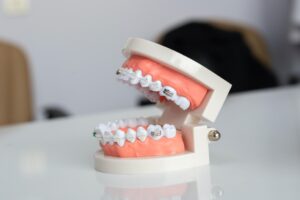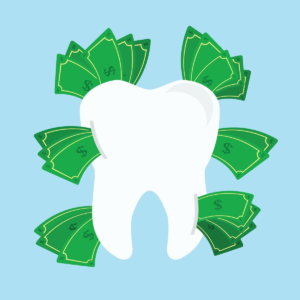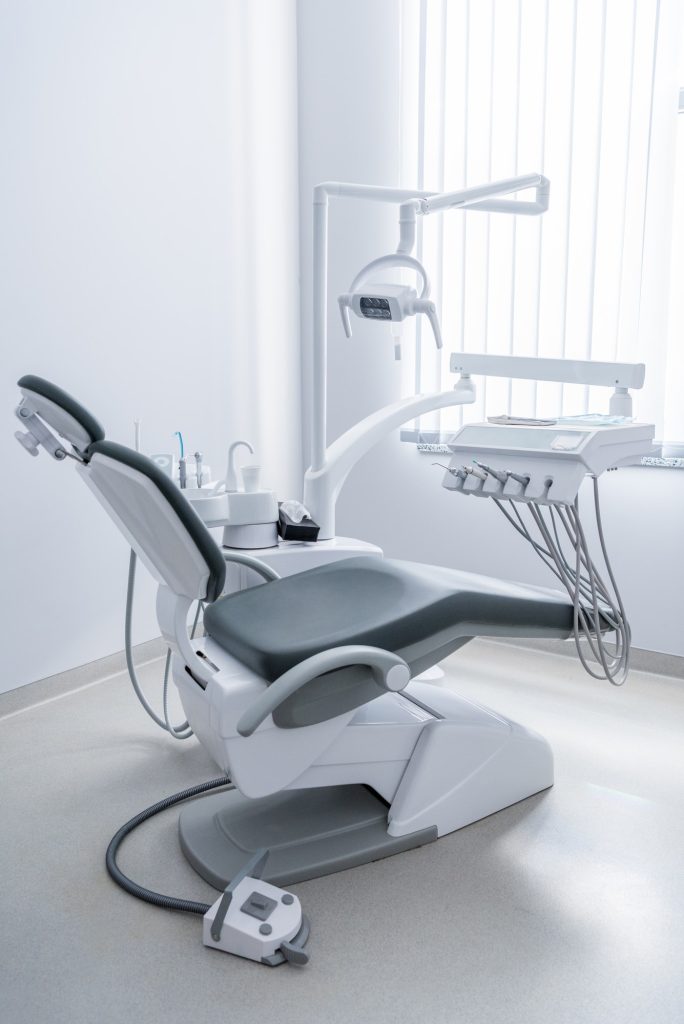If you’re seeking a solution to enhance the appearance of your smile, porcelain veneers might be an ideal option. They’re a popular choice for improving and restoring the look of your teeth. With veneers, you can transform a dull, yellowed smile into something vibrant and beautiful.
But before making that investment, understanding what porcelain veneers are – including their advantages and drawbacks – is crucial to decide whether this cosmetic procedure is right for you. This blog post will cover the fundamental aspects of dental veneers, allowing you to assess whether they’re suitable for enhancing your smile!
What are Porcelain Veneers, and How Do They Work?
Porcelain dental veneers refer to custom-made shells of tooth-coloured material affixed to the front surface of teeth to enhance their appearance. They typically improve the smile’s colour, shape, and overall look.
Veneers are often made from porcelain because it is more durable than other materials, allowing them to replicate natural teeth’ light-reflecting properties better.
If porcelain and composite veneers are compared, porcelain resists staining from food and drinks more efficiently than resin composite veneers, giving them an even longer life span.
Veneers are constructed in a dental laboratory by taking moulds of your teeth and then designing the shells to match your specifications. After they are created, they are placed over the front of your teeth and bonded with a special adhesive. The veneers will fit snugly to look and feel like natural teeth.
Benefits of Porcelain Veneers
This section will discover the many benefits of dental porcelain laminates and why they’re worth considering.
Natural looking
According to cosmetic dentistry experts, one of the biggest benefits of these dental veneers is their natural appearance. Since they’re custom-designed to match the colour and shape of your actual teeth, you can achieve a seamless, cohesive look that blends effortlessly with the rest of your smile.
Stain-resistant
Porcelain dental veneers are highly stain-resistant, so you don’t have to worry about discoloured teeth over time.
As porcelain is a non-porous material, it doesn’t absorb any pigments or colourants. This makes porcelain veneers a great option for those who love coffee, tea, wine, or other staining beverages and foods – you can indulge without worrying about damaging your teeth.
Durable and long-lasting
Porcelain veneers are also incredibly durable and long-lasting. By taking good care of them and maintaining them properly, porcelain veneers can last for up to 10-15 years. This durability makes them a worthwhile investment for improving your smile’s health and aesthetics.
Versatile
Porcelain veneers can solve various cosmetic issues, including crooked teeth, chipped or broken teeth, gaps between teeth, misshapen teeth, and discoloured or stained teeth.
Besides correcting the colour of your teeth, porcelain veneers can also be utilised to augment the size, shape, and symmetry of your teeth. This can result in a more aesthetically beautiful smile and feels more comfortable and harmonious. They can even help protect weakened or damaged teeth from further harm, providing an extra layer of strength and protection.
Boosts self-esteem and confidence
Porcelain veneers can boost self-confidence and self-esteem. Feeling good about your smile can encourage you to smile more frequently, increasing happiness and greater well-being.
Types of Porcelain Veneers Available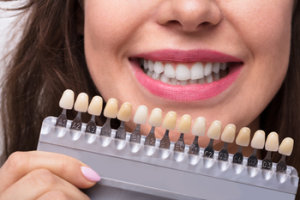
This section will delve into the different types of dental veneers and their benefits.
Traditional Porcelain Veneers:
The most prevalent form of porcelain veneers is traditional veneers, which are the ones with which most individuals are familiar. Constructed from premium quality ceramic material, traditional veneers are renowned for their robustness and durability.
No-Prep Porcelain Veneers:
If you’re looking for a less invasive porcelain veneer option, no prep veneers might be the right choice. No prep veneers are thinner than traditional veneers and can be bonded to your existing teeth without any preparation.
No prep veneers are faster and easier to install than traditional veneers, requiring little to no recovery time. They are ideal for people with mild cosmetic issues or those seeking a quick fix.
Lumineers:
Lumineers are a type of ultra-thin porcelain dental veneer. They are constructed from a specific material that is thinner and more translucent than traditional porcelain.
Lumineers require minimal tooth preparation, making them popular among people who want a non-invasive option. Lumineers can be fitted in just two visits and do not require any recovery time. They tend to last up to 20 years.
Composite Veneers
Composite veneers are another type of temporary veneer that is becoming increasingly popular. Unlike traditional porcelain veneers, composite veneers are made from a tooth-coloured resin material applied directly to the teeth.
Although they don’t last as long as other veneers, composite resin veneers are more affordable and require minimal tooth reduction. Composite resin veneers are also more easily repaired if they become damaged.
Zirconia Veneers
Zirconia veneers are another type of veneer that is becoming more popular. These veneers are made from zirconia, a dense, biocompatible, incredibly strong material.
CEREC Veneers:
Unlike other types of veneers, CEREC can be designed and installed in one visit to the dentist. Because they are made in-house, CEREC veneers can perfectly match your natural teeth, giving you a beautiful, seamless look.
The Procedure for Getting Porcelain Dental Veneers
In this blog section, we’ll walk you through the dental veneers procedure so you can feel informed and comfortable before you get started.
Step 1: Consultation and Planning
The initial stage in receiving dental veneers involves booking a consultation with a cosmetic dentist. At this appointment, the dentist will assess your teeth and evaluate your objectives and expectations for the procedure. X-rays and impressions of your existing teeth may be taken to aid in the planning process.
It’s also an excellent time to bring up any inquiries regarding the treatment or the price of dental veneers. Your dentist will collaborate to establish a customised dental veneers treatment plan that suits your preferences and requirements.
Step 2: Preparing Your Teeth
For your dentist to apply the porcelain veneers, they’ll need to start preparing your teeth by extracting a thin layer of tooth enamel from the surface. This ensures that the veneers will fit perfectly and look natural.
To ensure your comfort throughout the process, your dental consultant will use a local anaesthetic to numb the area before extracting the tooth enamel. Following removing the enamel, your dentist will take another impression of your teeth which they’ll use as a reference when developing the veneers.
Step 3: Creating the Veneers
Once your dentist has an impression of your teeth, they’ll send it to a dental lab where your custom veneers will be made. This procedure can take a few weeks, so your dentist will likely provide you with temporary veneers to wear in the meantime.
To make your new dental veneers, the dental lab must create a precise mould of your teeth using the impression your dentist took earlier. They use this mould to ensure that the veneers are created to match your existing teeth’ exact shape, size and colour as closely as possible.
Step 4: Placing the Veneers
When the dental veneers are ready, you’ll return to your dentist’s office to have them placed. Your dentist will first remove the temporary veneers and clean your teeth to prepare them for the new veneers.
They’ll then use a special dental bonding material to bond the veneers to your actual teeth and ensure that they’re securely in place. Once the veneers are attached through dental bonding, your dentist may make minor adjustments to ensure they fit comfortably and look natural.
Step 5: Follow-Up Care
Once your dentist has placed your dental veneers, they will provide you with the important guidelines on maintaining them so they stay durable for a long time. Proper maintenance is crucial, so make sure you follow their advice closely.
This may include regular teeth brushing and flossing, avoiding certain eating items that can stain the veneers, and wearing a mouthguard if you grind your teeth at night. Your dentist will also schedule periodic checkups to ensure that your veneers are in perfect condition and make any necessary adjustments.
Potential Complications with Porcelain Veneers
Our goal in this blog section is to inform you about the most common complications associated with these veneers so you can make a well-informed decision.
Sensitivity:
One of the most prevailing issues with these veneers is dental sensitivity. After the procedure, your teeth may become slightly more sensitive to temperature changes due to removing some of the enamel.
Discomfort:
Some patients may experience discomfort or pain after getting dental veneers. This discomfort may be due to improper fit or bonding of the veneers.
It can also be because of the removal of tooth enamel, which can take some time to heal. If you go through severe pain or discomfort that lasts longer than a few days, it’s important to contact your dentist for assistance.
Chipping and cracking:
Porcelain veneers are made of long-lasting material, but they can still get chipped if you bite down on hard objects or grind your teeth.
If a veneer chips or cracks, it will need to be replaced. If you don’t want to replace your veneers, caring for them is important. You can do this by avoiding biting down on hard objects and wearing a mouthguard at night if you have a night-grinding habit.
Staining:
These veneers are stain-resistant but can still become discoloured over time due to exposure to certain foods, drinks, and habits like smoking.
Avoid consuming staining substances like coffee, tea, wine, and soda to keep your veneers white. You should also maintain good dental hygiene by teeth brushing and flossing regularly.
Gum irritation:
Sometimes, these temporary dental veneers can cause gum irritation or inflammation. This can occur if the veneers need to be properly fitted or if they are too thick.
If you experience gum irritation, consult your dentist as soon as possible. They may need to adjust the veneers or recommend a different treatment.
Aftercare Instructions for Maintaining Your New Smile
This blog section will review essential aftercare instructions to ensure your new smile remains beautiful for years.
Keep up with oral hygiene.
Adhering to oral hygiene can keep your veneers looking and feeling fantastic. This means brushing your teeth two times and flossing at least once per day. Even though veneers are a cosmetic treatment, it’s important to know they’re subject to plaque build-up and decay, much like natural teeth. Therefore, keeping up with a regular dental care routine is important.
Avoid staining agents
Porcelain veneers are stain-resistant but can become discoloured with excessive exposure to staining agents. These include coffee, tea, red wine, and tobacco. If you consume these, rinse your mouth with water or brush your teeth immediately.
Wear a mouthguard
If you’ve got a tendency to grind your teeth at night or play contact sports, protecting your natural teeth and veneers from harm is essential. Wearing a good mouthguard is a great way to prevent damage to both, and it’s recommended to get a custom-fit mouthguard specifically made for you by a dental professional. This will ensure maximum protection while also ensuring a comfortable fit. Be sure to speak with your dental consultant to learn more about getting a custom-fit mouthguard.
Schedule regular dental checkups.
You should plan routine appointments with your dentist to guarantee proper oral health and that there aren’t any arising dental problems or concerns with your veneers. When you go for your routine checkup, be sure to bring up any queries or doubts that you may have about your veneers, as your dental consultant is the best person to address these issues. You can prioritise regular checkups to keep your oral health in the best possible shape.
Be gentle
While these veneers are durable, they can still chip or crack under excessive force. Avoid biting hard things such as ice or pencils, and don’t open packages or containers with your teeth. Additionally, don’t chew on sticky or hard foods, as this can cause damage to your veneers.
Cost Considerations When It Comes to Getting Porcelain Veneers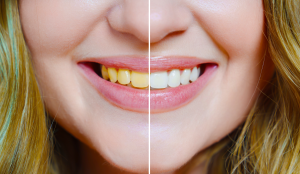
In this section, we’ll examine the factors that influence the porcelain veneer cost.
Factors that impact the porcelain veneer cost
The cost of porcelain veneers can vary depending on several different factors. These include the number of veneers you need, the complexity of the treatment, the experience of the dental professional performing the procedure, and the geographic location where you receive the treatment. Generally speaking, the more veneers you need, the higher the cost.
Average porcelain veneers cost
The American Dental Association claims that the price of porcelain dental veneers can fluctuate depending on various factors. Generally, porcelain veneers cost from $800 per tooth.
Insurance coverage for porcelain veneers
Mostly, dental insurance does not cover the cost of cosmetic procedures such as porcelain veneers. However, if you need veneers for therapeutic purposes like repairing a chipped or broken tooth, your insurance may balance over some of the expense. It’s crucial to check with your insurance manager to learn about the extent of coverage for dental veneers and what procedures are covered.
Financing options for porcelain veneers
If the cost of these veneers concerns you, financing options can make the treatment more affordable.
Numerous dental clinics provide payment plans or financing alternatives that enable you to split the cost of your dental treatment over a few months or years. Moreover, you can finance your treatment with a medical credit card.
The value of porcelain veneers
Despite being a significant investment, most people believe that the benefits of porcelain veneers outweigh the costs.
Porcelain veneers can dramatically enhance the look of your teeth and ultimately make you feel more confident in your smile. Additionally, porcelain veneers are made to be durable and long-lasting, which means that they don’t need to be renewed or replaced as frequently as other types of dental treatments.
Conclusion
Porcelain veneers are an amazing dental procedure that can help you get your dream smile. Not only do they cover up any imperfections you may have, but they also look natural and desirable.
The benefits of having porcelain veneers are numerous, so it’s something to consider if you’re considering a cosmetic dentistry procedure. When considering getting porcelain veneers, research potential complications from the procedure or ask your dentist for any advice or recommendations about your questions.
For more queries on how porcelain veneers can help beautify your smile and confidence, contact us at (03) 9000 0537 today – our experienced staff will assist you with all your dental concerns!
References
https://www.medicalnewstoday.com/articles/dental-veneers
https://www.colgate.com/en-us/oral-health/veneers/dental-veneers-pros-and-cons
 Now
Now






